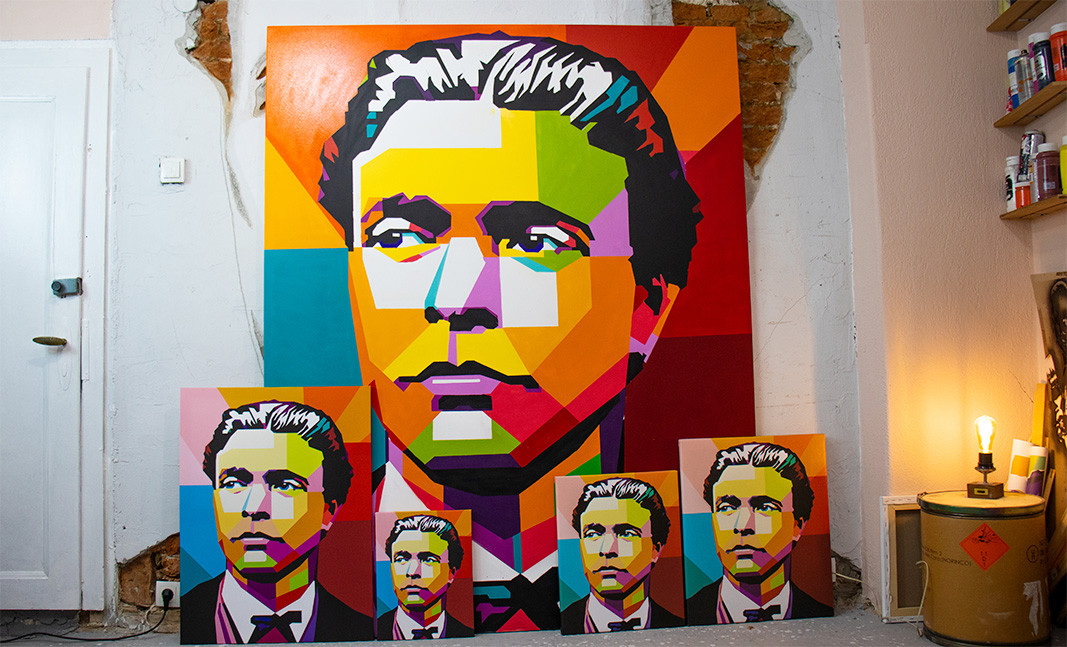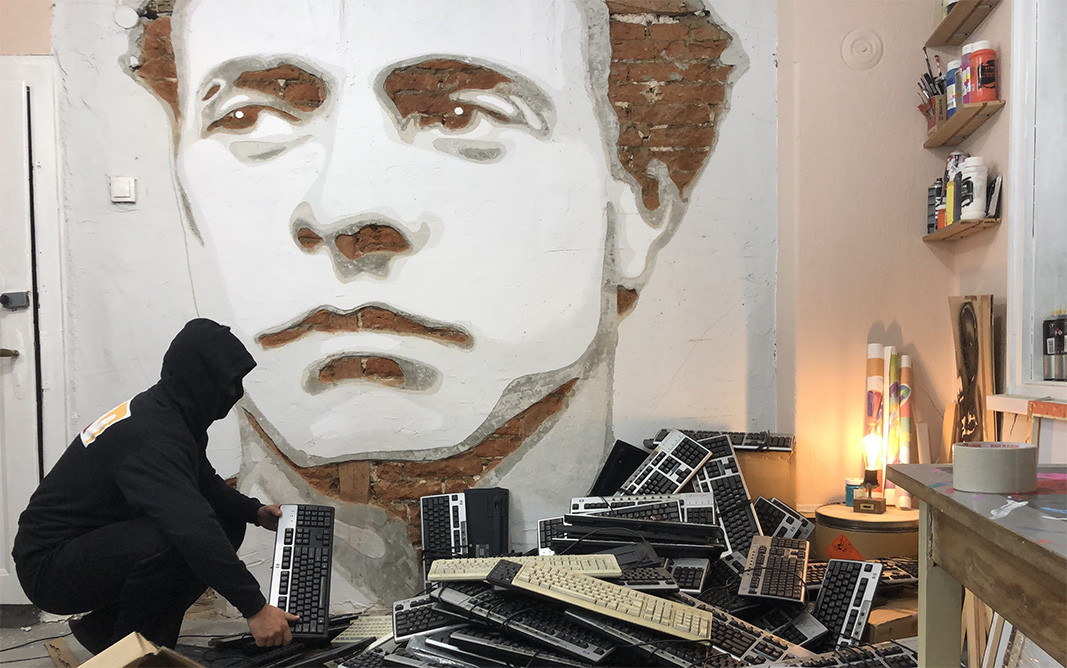Revolutionary Vasil Levski has long ago become a unifying figure for Bulgarians. Besides his fight for a “pure and sacred republic”, the Apostle of Freedom, as he has come to be known, has left us a legacy of truths in life that actions are needed, not words, that we must be united, that we must act maturely in all things.
What Vasil Levski has said and written in his life is as valid today as it was then, that is why we should see his face around us more often. That is something one young artist believes, so he has set about depicting Vasil Levski in brilliant and provocative tones. His idea is to the liking of many because his ideas are unconventional and he works with a flair to bring the public closer to the national hero.

The author of the modern portraits of Levski remains anonymous. He does not want his face to be seen or his name known because he says a person can only make a difference if they have an objective and a mission in life:
“Levski is, I think, the only possible future for us, his legacy is the only way to attain happiness, freedom and unity,” says, in an interview for Radio Bulgaria, the visual artist who signs his works as No Name. “Today we are reading modern books about how to be productive, how to be motivated, how to find happiness. But I think we ought to take Levski’s legacy as the guidelines in our lives. We would then attain everything we need. “Actions are needed, not words,” is the legacy I apply in my life more than anything else. When I see something I don’t like I don’t waste my time with words, I sit down and act. Whether I will change anything, that I don’t know, but I act. Usually the problems can’t be solved by just one person but along his way other people turn up who have a similar aim. That is how unity is attained, you don’t need to see the ultimate goal to start something, but then how can you see it if you don’t start?”

Once the artist saw a black-and-white portrait of Levski next to a trash can. That saddened and angered him at the same time. He says he doesn’t understand how it is we have got rid of the heroes in our lives so quickly. Surely, there is a place in our modern homes and offices for the portraits of Levski and of Botev, he says. And he launched a campaign of his own in the social networks. He calls it “Future for the past”, and he says he wants a portrait of the Apostle of Freedom to be part of hundreds of Bulgarian homes.
“Instead of sitting around doing nothing I decided to create new, modern portraits of Levski capable of arousing the curiosity of all generations. My aim is to create pictures people will want to hang up in their modern homes. That will keep the heroes close by so our children can see them. I sometimes use unorthodox materials which are not even used in art. I “painted” Levski on a wall using a jackhammer to pry off the wall’s coating. I recently did a huge portrait of the hero made out entirely of keyboard keys. The aim of my video messages, and of the portraits is to say to people that if they turn to our heroes they might find the answers to the questions of how we can live a better life.”

Students block the entrances to the Radio and Television of Serbia For 12 days now, students and citizens have been blocking the entrances to Serbia’s national radio and television broadcaster (RTS) in protest against how the state media is..
In the Schaarbeek municipality of Brussels, there is a small corner of Bulgaria inside the Sophia Municipal Library, housing a valuable collection of Bulgarian books. Librarian Aaron Willem played a key role in setting up the Bulgarian section of the..
Shepherd of the soul, priest of all with open hearts, modern prophet – these are some of the definitions with which Pope Francis remains in the memory of people regardless of affiliation and faith. In 2019, he visited Bulgaria,..
There is a special workshop for pottery - of the royal kind – used by the boyar families from the time of the Second Bulgarian Kingdom (12 th – 14 th..
Bulgarian students from both Bulgaria and the USA embarked on a journey to trace the history of Bulgarian-Americans, spending two years researching the..
In the early 1960s, it was concluded that Bulgaria’s water resources were insufficient to meet the needs of agriculture. As a result, large-scale..

+359 2 9336 661
